After a football game you need the right nutrients for your post-workout meal to recover, refuel, re-energize, and build muscles.
The most important nutrients you need to refuel after a football game are carbohydrates, protein, and fluid. Build a balanced meal around these nutrients and you will get the right post-workout fuel you need for muscle recovery and will restore the energy you expend in the game.
This post brings you the best post-game nutrition ideas and tips to boost your recovery and improve future football performance. Keep reading below to learn about the 3 most important nutrients to include as part of your football post-game meal or snack, how much, what, and when to eat.
Looking for a little more help and guidance with nutrition this football season? I’ve got you covered-
Fueling Teens Nutrition Game Plan for High School Football Ebook
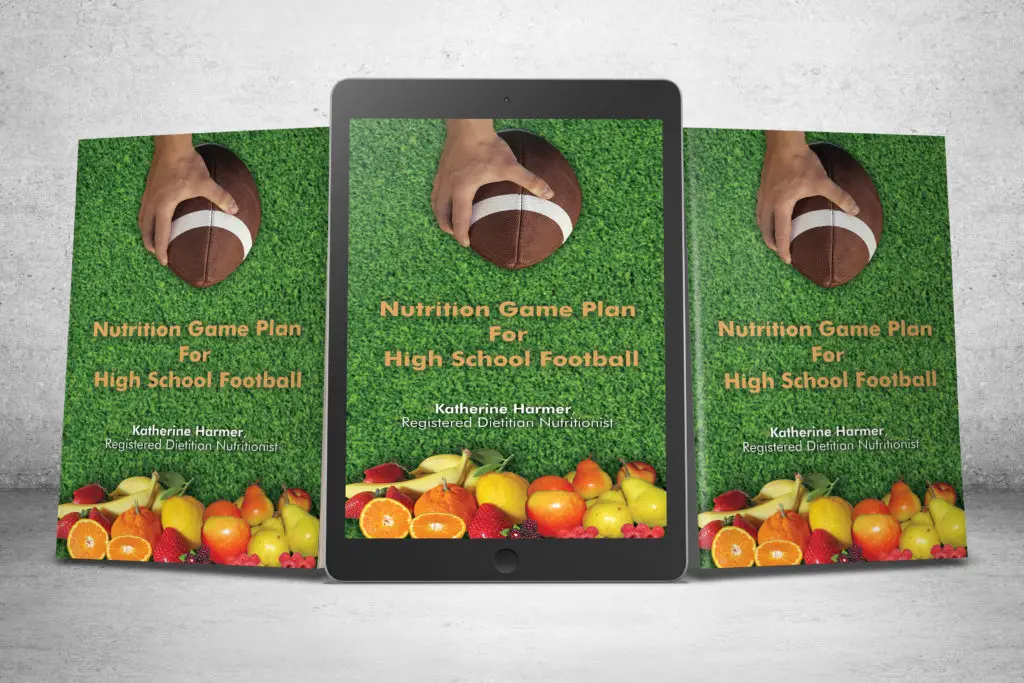
All you need to know for a healthy football season! Including a 28-day meal plan, snack idea list, tips for what, when, and how much to eat for football, recovery tips, supplement recommendations, hydration, meal schedule, plus more. Fuel up for your best football season yet and rise above the competition!
Click here for more information.
What Should Football Players Eat After a Football Game?
Football is a grueling sport and proper nutrition is essential for optimal athletic performance. After a football game you need to refuel your body with the highest quality foods since you’ve burned a ton of calories. Adequate nutrition after an intense workout or game will help you to improve your strength, endurance, stamina, and speed.
Post-game nutrition is essential to help you recover, refuel, rehydrate, build muscles, and improve future performance. We’re talking about recovery foods today.
There are 3 key types of nutrients athletes need to focus on when they refuel after a workout or game: carbohydrates, protein, and fluid.
This post covers key nutrients to include in your post-workout meal, when you should eat after a workout or game, and some ideas of the best foods to include. Keep reading to learn how to create the best post-workout or post-game meals and snacks.
Post-work out meals: You shouldn’t need to change your diet much- just eating regular and healthy food is enough. Build a balanced meal around the following nutrients as well as fruits and vegetables and you’ll be getting the right fuel you need post-workout or post-game to refuel, re-energize, and boost your training to adapt your body to perform better.
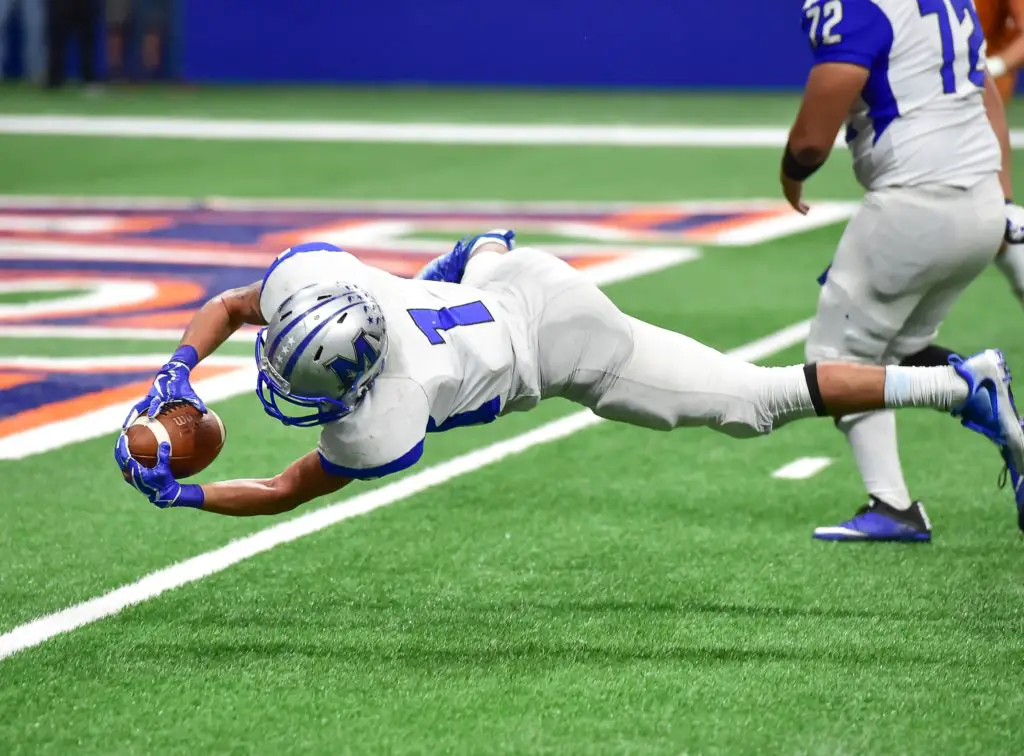
Important Nutrients to Include in your Post-Workout Meal After a Football Game:
Protein–
Protein is the building blocks that keep your muscles strong and help them to grow bigger. You need to eat some protein within 2 hours after you exercise in order to help your muscles recover and strengthen.
You’ll want to refuel with protein after exercise as well as throughout the day (every 3-4 hours) to encourage the most muscle growth. Aim for between 15-30 grams of protein post-workout or post-game (or about 0.15 grams or more per pound of bodyweight).
Your body can’t effectively process and use much more protein than that, so don’t worry about eating as much as you can. You don’t need to eat too much protein because your body can’t store any extra protein.
I would recommend to eat at least a light snack that includes protein within 2 hours after you exercise. You also want to include some protein foods regularly spaced out during the day for breakfast, lunch, dinner, and any snacks. You can get protein from animal sources as well as plant sources.
Past research indicated that the quicker that protein (amino acids) got to your muscles, the better. That’s why protein powders and protein bars became so popular, because they are a quick-digested protein source (like whey protein and casein). With newer research, there’s no real evidence that protein powders and protein bars help better than real food.
What protein powders and bars are best for teen athletes? Check out my post: The Best Protein Powders and Shakes for Teen Athletes. Protein powders aren’t necessary for teenagers and may contain unsafe ingredients. With appropriate planning, you can get plenty of protein from whole foods.
Choose the type of protein you want for your post-football meal. If you want something quick and convenient- choose a protein bar or shake. If you want something filling and satisfying- choose real food. Focus on 15-30 grams per snack and meal. Here’s some ideas.
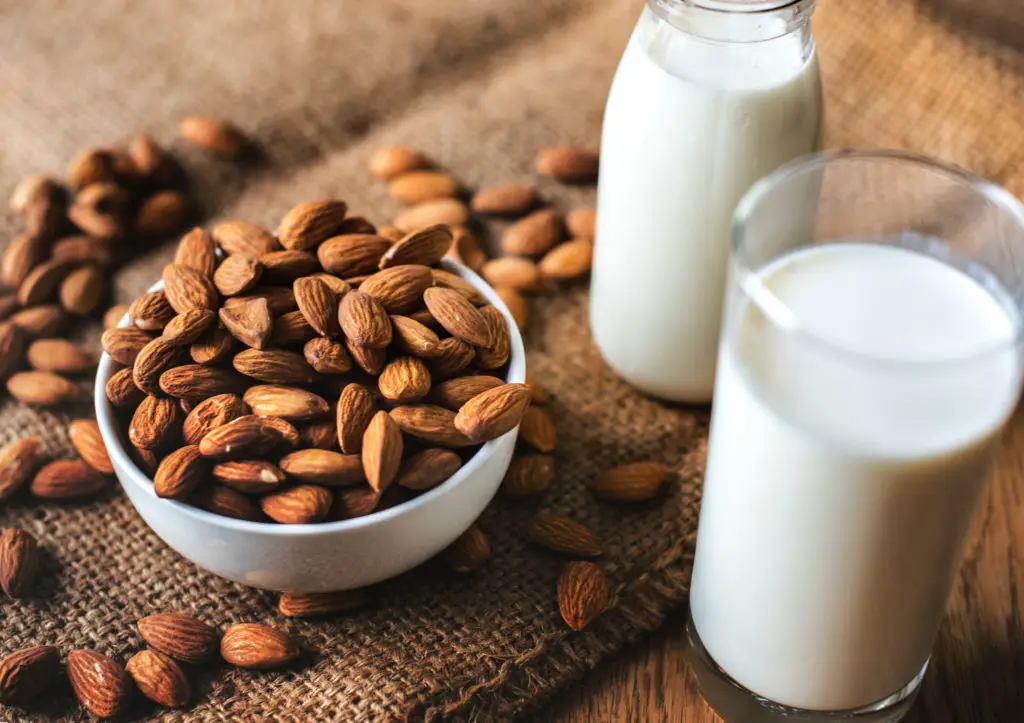
Examples of 15-30 grams of protein:
- 1 scoop of protein powder (mixed with milk, water, oatmeal, yogurt, or in a shake)
- 1 protein bar (look for protein bars with 15-20 grams of protein, less than 9g of sugar, and less than 5g of saturated fat)
- About 1/2 cup of hummus/beans with vegetables or crackers and 1 slice of cheese
- 2 cups of milk or servings of dairy =
- 2 slices of cheese with crackers
- 2 cups regular yogurt with fruit/granola
- 1 cup cottage cheese with fruit
- 1 cup of greek yogurt
- 2-3 boiled eggs
- 1/2 cup of nuts (but be careful with nuts, that’s a lot of calories too!)
- 1/4 cup of peanut butter- eat with crackers, apples, and celery (but also high in calories)
- 2-4 oz of chicken – about a medium-sized chicken breast
- 3 oz can of tuna with crackers
Carbohydrates–
Don’t listen to what you hear about very-low carbohydrate diets, or eliminating carbs. Carbohydrates are your friend during football!
Carbohydrates (AKA carbs, glucose, sugars, glycogen) are important during football games, they are the #1 preferred fuel source for your muscles during exercise. This is the main source of energy you use during your football game.
After a game, your body’s storage form of carbohydrates, called glycogen, is depleted and you need to re-fuel. Glycogen stores deplete after 1-3 hours of activity, depending on the intensity. With a football game they can diminish quickly.
You need to replenish carbohydrates within 2 hours after a game in order to build these stores. If you fuel yourself with the right types of carbohydrates after training, you will also be able to build your glycogen stores slightly over time so you will recover faster in the future.
Carbohydrates adapt the muscle to training so you can perform better next time. With the correct timing of nutrients, your muscles will be better trained to use your glycogen stores effectively and your glycogen stores will increase for longer energy next time. This will help you perform at your top athletic performance for as long as possible.
As part of your pre-game meal, choose quality complex carbohydrates such as brown rice, potatoes, whole-grain breads and pastas. Choose whole wheat and whole grains instead of white breads.
Whole grain sources will be the best type of carbohydrates to help you recover and refuel plus provide additional beneficial nutrients such as fiber, B vitamins, iron, and more.
Aim for about 75-100 grams of carbohydrates in your meal. Here are some examples of appropriate carbohydrates as part of a football post-game meal:
- 2 sandwiches on whole wheat bread
- 2 cups brown rice
- 2 cups whole wheat cereal and 1 cup milk
- 2 cups oatmeal plus 1 medium fruit
- 2 cups whole wheat pasta
- About 3 whole wheat tortillas
- 24 whole grain crackers
- 1 cup corn plus 1 medium baked sweet potato
- 2 cups of cooked quinoa
- 1 medium apple, 1 banana, 1 cup of grapes
- 3 rice cakes with peanut butter, jelly, and 2 fruits
Use this list to mix and match! Some of these amounts seem like a lot of one food– you should aim for a balance. Divide up your carbohydrates between a few different foods, try some crackers, some fruit, and some milk to add towards your total carbohydrate intake.
As an additional tip- decrease added sugars! Limit candy, sweets, treats, pastries, and desserts. This is not the best way to fuel your body. Post-game nutrition should be considered part of your training regimen to help prepare your body for the next game. You need the best nutrients.
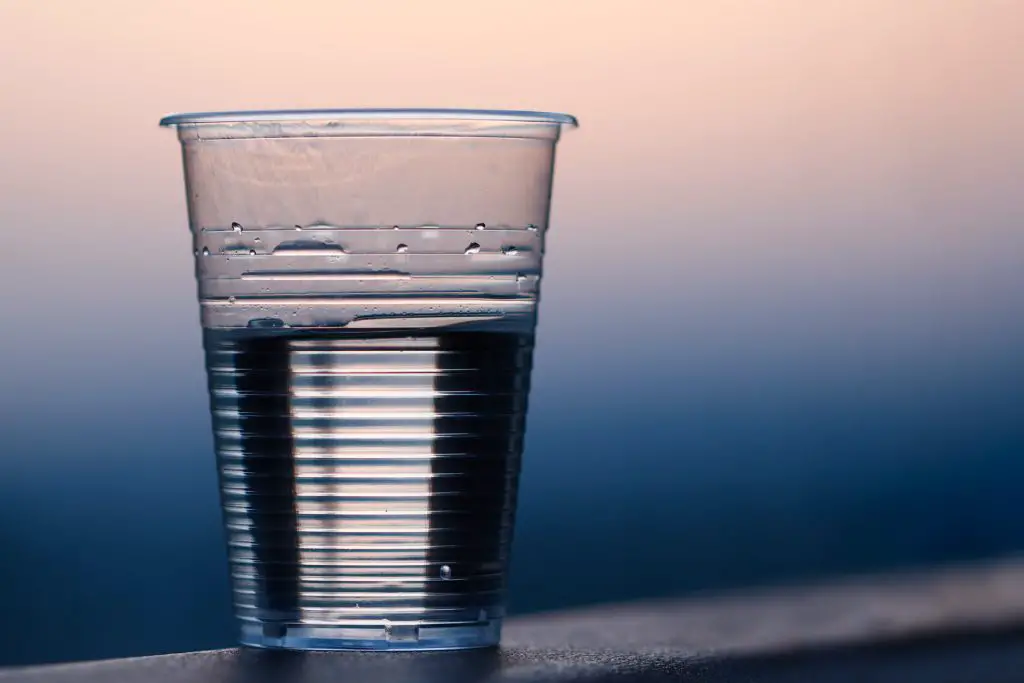
Fluid-
You also need to rehydrate after a football game. During your football game, you worked hard and lost water and electrolytes through sweat. It’s important to replenish both water and electrolytes after a football game in order to boost recovery and later performance.
Water is appropriate in order to replace your fluid needs, and as long as you are eating a balanced meal your body will get all the nutrients and electrolytes you need as well.
Are sports drinks and other drinks ever appropriate? Check out my post Should Football Players Drink Gatorade (coming soon) for some hydration tips before, during, and after a football game.
The general recommendations is that you want to drink about 2 cups of water for every pound of weight you lost during activity (from sweat and other water losses). But most people don’t weigh themselves before and after a football game, so here are recommendations that are a little easier to remember:
How to Stay Hydrated During Football Games:
- Stay hydrated during the day.
- 1-2 hours before kickoff drink 15-20 ounces of water (that’s 1-2 12 oz water bottles).
- Drink 8 ounces before your game and 8 ounces about every 15 minutes of intense exercise (3/4 of a 12 oz water bottle each time).
- Hydrate after your game with at least 8-16 ounces of water (1 water bottle).
Best Post-Game Meal Ideas For a Teenage Football Athlete:
It’s also important to note that protein, carbohydrates, and fluid are not ALL you need, but these are the main nutrients you need to replace and refuel for your body. The key is balance, your body also needs many vitamins and minerals. Adding fruits and vegetables and other nutrient-rich foods to your recovery meal will provide your body with all the essential nutrients you need.
So now we discussed the importance of including protein, carbohydrates, and fluid as part of a healthy football post-game meal. Let’s put it all together and create an appropriately balanced meal for you.
Don’t stress too much about the exact amounts- you don’t necessarily have to measure and weigh all of your food to make sure you are eating properly. I just like to give you ideas to get started. Just make sure you have a balanced colorful plate and eat until you are filled.
Here’s examples of meals that combine the recommendations of 15-30 grams of protein and 75-100 grams of carbohydrates for a perfectly fueling post-football game meal.
Best Football Post-Game Meal Ideas:
Focus on lean protein, healthy carbs, fruits and vegetables, and plenty of water for your recovery meal. Here are some great meal ideas:
- 1 cup whole-wheat pasta, tomato sauce, meatballs, 2 breadsticks, and 1 cup vegetables.
- Egg omelet with avocado, toast
- Salmon, brown rice, vegetables
- Tuna salad on a whole grain sandwich
- Whole wheat cereal, sliced bananas, and skim milk
- Oatmeal, protein powder, bananas, and sliced nuts
- 2 peanut butter sandwiches on whole wheat bread
- grilled chicken, 1 medium baked sweet potato, 1 cup black beans
- quinoa bowl with 2 cups cooked quinoa, black beans, avocado, tomatoes, 3 oz shredded chicken
- turkey burger
- Chicken and veggie pizza
Don’t forget the fluid- drink up. The best options are water, low-fat milk, or a small amount of juice. Stay away from soda, lemonades, and sugar-sweetened beverages.
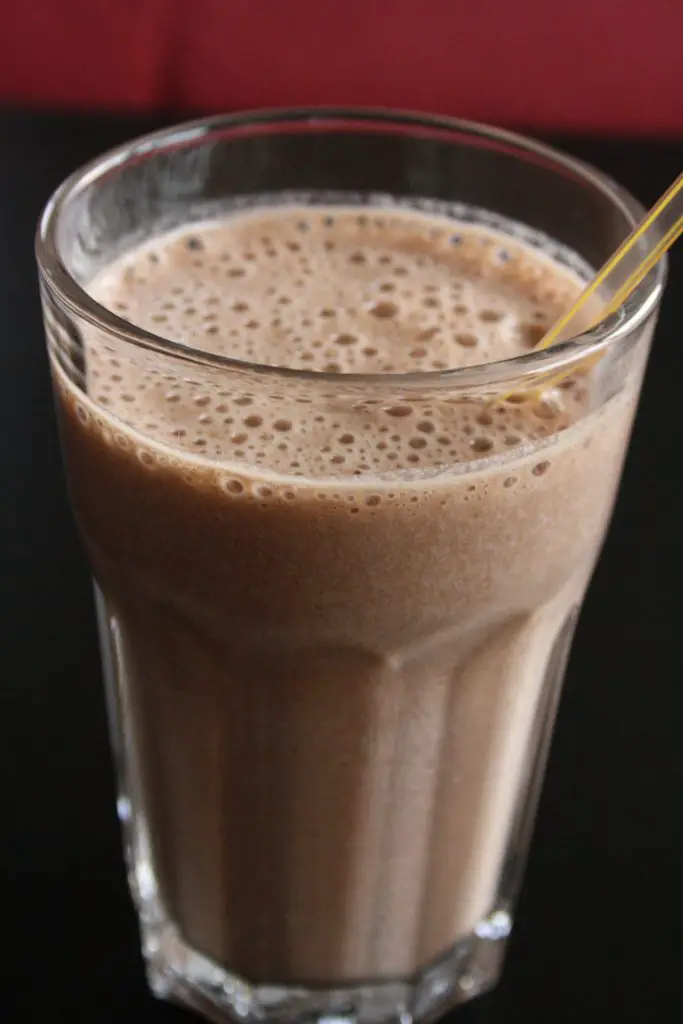
Post-Game Snack Ideas for a Teenage Football Athlete:
- Chocolate milk (contains protein, carbohydrates, and fluid)
- Protein shake with 1 banana, 1 cup milk, 1 scoop protein powder
- Greek yogurt with berries and granola
- Hummus, 24 crackers, vegetables, and 1 apple
- Cottage cheese and fruit
- rice cakes with peanut butter, fruit
- 3 oz can of tuna with crackers
- 2-3 boiled eggs
- trail mix with string cheese
- Protein bar
When to Eat After a Football Game:
If you aren’t ready for a meal, at least try to eat a balanced snack within 1-2 hours after a football game. See above for the best post-football meals and snacks.
It’s also important to remember you don’t need to eat as much as possible. Don’t stuff yourself with food, eat slowly until you are satisfied. The key is quality, not necessarily quantity (although you still need to eat enough to refuel).
Be sure to check out my meal plan for high school football players. You’ll get more ideas for how your week meals and snacks should look and a FREE 1-week football athlete menu plan. (Coming soon).
Summary:
- Your post-football game should include high-quality carbohydrates, high-quality protein, plenty of fluid, healthy fats, and some fruits and vegetables.
- Eat your post-game meal or snacks within 1-2 hours after exercise so your body can effectively utilize the nutrients to refuel energy stores and rebuild muscle.
- Liked these tips and looking for more? Check out my ebook- Nutrition Game Plan for High School Football Players. All you need to know in one place for a healthy, fully-fueled football season.
Did I miss anything? What is your favorite post-game meal? I hope you got some meal inspiration from this post. What ideas are you interested to try after your next football game?
Wishing you the healthiest game possible. Eat! Fight! Win!
Related Posts for a Healthy Football Diet:
- The Best Time to Eat Pasta Before Football
- The Worst Foods to Eat Before Football
- How Big Should Football Players Be?
- How Many Calories Does a High School Football Player Need?
- Should Football Players Drink Gatorade?
By Katherine Harmer, Registered Dietitian Nutritionist
Fueling Teens is a participant in the Amazon Services LLC Associates Program, an affiliate advertising program designed to provide a means for sites to earn advertising fees by advertising and linking to Amazon.com. We also participate in other affiliate programs which compensate us for referring traffic.
